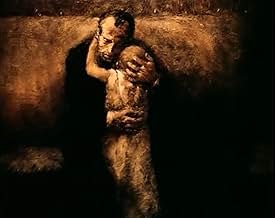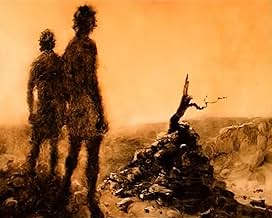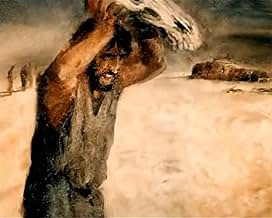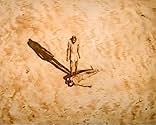'The Dream of a Ridiculous Man (1992)' was Aleksandr Petrov's third film as director, after 'Marathon (1988)' and 'Korova (1989).' It's the work of an animator who's well-and-truly become comfortable with his craft; nobody with doubts about his own talents would ever attempt something as ambitious as a Dostoevsky story. Unfortunately, like most of Petrov's works, the film is notoriously difficult to follow if you don't already know what is going on. He delights in blending realism with fantasy, decisively blurring the line between the two, and so it didn't help that I ventured into the film without English subtitles. Nevertheless, from a purely visual standpoint, there can be little doubt that 'The Dream of a Ridiculous Man' is an incredible piece of art, a shifting canvas of vivid oil paints that more closely resemble an Expressionist masterwork. Unforgettable dream-like images the flicker of passing lights through a train window, a dazzling Utopian land beneath the blazing sun, the gleam of flaming dancers retain their strength even after the film itself has come to an end.
Unable to understand any of the dialogue, I was forced to piece together the story through its vague images, aided by a brief synopsis of Dostoevsky's original short story. A lonely man, having decided that nothing in his life matters to him anymore, rejects a young girl's pleads for help before returning to his apartment to contemplate suicide. Yet unable to commit the act, the man instead falls asleep and dreams of his death, after which he is whisked from his grave and transported to a Utopian island where it is always sunny. However, after he tells a lie, the entire land is swiftly consumed by the cold hand of sin. The man awakens, and returns to help the young girl whom he had earlier brushed off, having been handed a new lease on life. 'The Dream of a Ridiculous Man' is an excellent work of Russian animation from one of the field's most impressive artists, meticulous enough to rank up there with the director's finest which are, for the sake of reference, 'The Old Man and the Sea (1999)' and 'My Love (2006).'





















